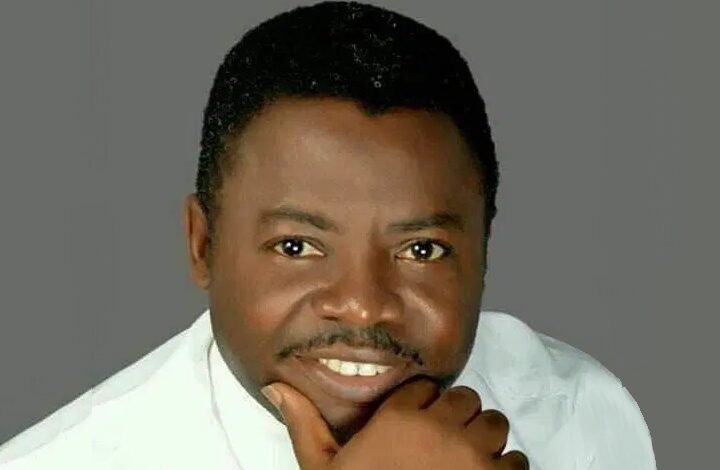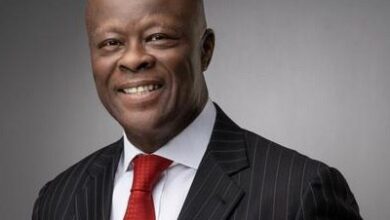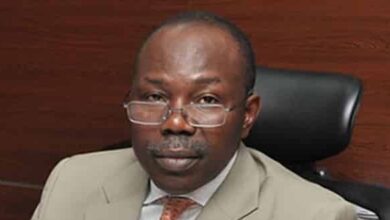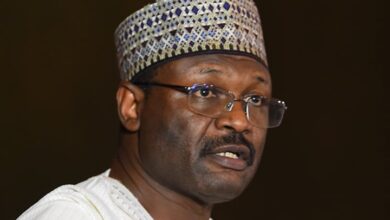Stealing or Serving: The Question Bank’s CEOs, Public Servants, General Overseers Must Answer

As Nigeria marks its 65th Independence Anniversary, there is both reason to celebrate and reason to mourn. On one hand, we celebrate the resilience, creativity, and enduring spirit of Nigerians across generations.
We are proud of our heritage, culture, and natural resources. But on the other hand, we are forced to reflect on why has a country so blessed remained so behind?
Nigeria is one of the most gifted nations on earth:
- Vast mineral deposits (oil, gas, gold, limestone, iron ore, etc.)
- Fertile, arable land across multiple climate zones
- Strategic geographical location in West Africa
- An energetic, educated and young population.
Yet, we remain in the deep of poverty, insecurity, underdevelopment, and poor governance.
What happened to Nigeria? What keeps pulling us back every time we try to rise?
This analysis points ONLY to one main answer: the compromise and collapse Of the judiciary and the absence of rule of law.
Nigeria has been described as a “rich country of poor people.” This unfortunate expression exists because, although we are richly endowed, the structures required to manage, protect, and distribute national wealth equitably have failed.
Every region in Nigeria has something of value:
- North: Tin, columbite, arable land, livestock
- Middle Belt: Coal, fertile valleys, great farm land, solid minerals
- South: Crude oil, gas, fisheries, arable farm land, forests and ports.
No state in Nigeria is without resources, month after month and year after year, Governors line up at Abuja to beg for monthly allocations. Because the system is designed to reward dependence and punish productivity if you think critically about it.
At the center of this dysfunction lies a failed judicial system that does not hold anyone accountable for crimes at any level, unless you are poor and have no one in position of power.
Nigeria’s judiciary, once the pride of the nation, has now become its biggest liability, the judges have become the thieves and criminals while the lawyers are their un-official aids and errand boys in crime.
- Bribery and case manipulation are the order of the day, you can not get judgement if money has not exchange hands in modern day Nigeria.
- Judges and lawyers with fake credentials are routinely elevated to positions just for the sake of it, a man that read Islamic law is promoted the Chief Justice of the highest court in the land when the courts are run on English Common Law.
- Cases are delayed for decades, or dismissed on flimsy so called technicalities.
- The title of Senior Advocate of Nigeria (SAN) is now often bought or assigned, not earned.
This situation has created a justice system where the guilty go free every time and the innocent suffer. There have even been allegations that innocent people have been taken off the streets and used as replacements for inmates already in custody.
Those with money or political connections can commit any crime, secure favorable judgments, and even return to office even after initial convictions, we all know who the famous example of this is.
This culture of impunity flows from the top and infects every other arm of government. Until Nigeria’s judiciary is revived and sanitized, nothing else will work successfully in Nigeria. We all are aware of the saying “if the premise is wrong every answer must be wrong.”
The damage caused by a weak judiciary is enormous, here are some:
1. Executive Recklessness: Governors, ministers, and even presidents act with impunity because they know the courts will not and can not stop them.
2. Corruption Thrives: Without fear of prosecution, public officials loot with no care at all, long as it is not tied down there is someone ready to take it and damn the consequence because they know at the end of the day nothing will ever come of it.
3. Law Enforcement Is Compromised: Our corrupt and compromised Police and security agencies rarely act on court orders—or obey them only when convenient.
4. Investor Confidence Declines: truth is No serious investor will commit serious capital to a country where contracts are not enforceable.
5. Insecurity Reigns: Bandits, kidnappers, and terrorists thrive when the courts cannot or will not prosecute them effectively and carry out the punishment quickly and publicly for any one thinking of such acts to see and know what they have in store if they try.
What we now experience as Nigeria’s problems namely corruption, unemployment, insecurity, poor education, poor-infrastructure etc. are merely symptoms, the main disease is a comatose judiciary on life support.
Many countries that were once underdeveloped have made significant progress through just judicial reform and strict enforcement of the rule of law.
* Singapore: Formerly as poor and corrupt as Nigeria in the 1960s, it turned around under Lee Kuan Yew, who made law and order the foundation of national transformation and that is how it is till this day.
* China: Despite being a one-party state, it enforces the law ruthlessly, especially when it comes to corruption and national interest, we in Nigeria must learn and practice something similar.
* Qatar and UAE: Countries that once depended on oil have diversified through strict legal structures that attract foreign investment and protect national assets, making sure individuals found wanting are highly punished and disgraced for all to see.
All of these countries understood one thing, no nation rises above the quality of its judiciary.
Until Nigeria treats the rule of law as sacrosanct, we will continue to fail despite all our natural blessings, it will only continue to be the normal case of running around in circles sad as that may sound.
If Nigeria fixes its judiciary, the following would naturally fall in place: Swift trials for criminals and terrorists, Independent judges protected from political influence, Severe penalties for corrupt politicians and public servants, Respect for contracts and business agreements, Confidence in law enforcement and justice.
When the judiciary is feared and respected, even the most hardened politicians or criminals will think twice before committing crimes. Rule of law creates a climate of accountability, and in such a climate, development will have no hold back but to flourish.
While the judiciary remains the single greatest problem, a second critical reform is needed: true federalism.
Nigeria’s current structure, where the federal government controls most resources and policy, does not work and has failed.
We must devolve power to the states, this is to encourage the following:
1. Encourages innovation: Each state can build its economy based on local strengths.
2. Reduces corruption: Less money at the center means fewer incentives to congregate and share the wealth in Abuja.
3. Drive competition: States will begin to compete to attract talent and investment.
4. Resolves agitations: Ethnic and regional grievances can be managed better locally while most issues are also localized.
5. Breaks dependency: States will no longer beg for federal allocations, they would have to work to make sure they take advantage of the resources at their door step.
It makes no sense that individuals own oil wells in Nigeria while state governments struggle to pay salaries, such Oil-wells should be revoked and re-assigned to individual states to manage and maintain. Let every state manage its resources and remit taxes to the federal government. That is how true federations work. As controversial as that may sound, it is simply the answer to our resource management, all resources must belong to the states.
Even with judicial reform and devolution of power, progress will be stalled unless we confront and silence the enemies of development and they are just about every where:
* Religious extremists
* Ethnic bigots
* Political demagogues
* Fake leaders with no vision, armed with nothing but raw violence etc.
In 2025, as the world embraces Artificial Intelligence (AI), robotics, and green energy, some Nigerian leaders are still talking about Muslim -Muslim ticketing, stoking tribal fears, and sponsoring bandits for political gain.
We must condemn such individuals and reject them at the ballot box, in public discourse, and in our communities. Leadership must be about capacity, not tribal or religious identity.
The Nigeria of tomorrow cannot be built by the narrow-minded leaders of yesterday. And any time it can be proven that any individual no matter how high placed in society has a hand in extreme acts leading to deaths of another, they need to be arrested, tried and punished even if it means by public execution.
Nigeria is not a failed state, but it is one on its way to failing if somethings are not done sooner than later.
To get the redemption we must do the following:
* Total judicial reform
* Rule of law that applies equally to rich and poor, old and young
* Devolution of power to unleash the potential of every state and individual in the country
* A mind reset that prioritizes rule of law, merit, accountability, and vision over mediocrity, ethnicity or religion.
Let me be as clear as I can here; No president, no senator and certainly no minister can save Nigeria until we fix the judiciary. The foundation of any great nation is justice. When the judiciary is right, every other arm of government must fall in line.
That is why as an off ramp, it only helps us as individuals to vent our frustrations when we blame President Tinubu or any government officials for Nigeria’s problems.
If the Judiciary start to work the way it is designed and supposed to, every one starting with the President will think twice and fall in line to do the right thing.
Nigeria remains the only country we have, and it is our collective responsibility to hold our judiciary’s feet to fire to save it from collapse.
We believe in her promise, we love her and we hope for a future where our children will be proud to say:
“I am Nigerian, and I am proud of my country.” Happy 65th Independence Day, Nigeria.
High Chief Christopher I.D. Wenegieme writes from Aurora, Colorado USA.
Post Views: 34




